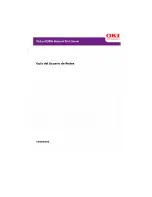
deconfiguring
a
memory
DIMM,
see
the
Memory
Configuration/Deconfiguration
Menu
on
page
384.
Both
of
these
are
submenus
under
the
System
Information
Menu.
You
can
enable
or
disable
CPU
Repeat
Gard
or
Memory
Repeat
Gard
using
the
Processor
Configuration/Deconfiguration
Menu,
which
is
a
submenu
under
the
System
Information
Menu.
Run-Time
CPU
Deconfiguration
(CPU
Gard)
L1
instruction
cache
recoverable
errors,
L1
data
cache
correctable
errors,
and
L2
cache
correctable
errors
are
monitored
by
the
processor
run
time
diagnostics
(PRD)
code
running
in
the
service
processor.
When
a
predefined
error
threshold
is
met,
an
error
log
entry
with
warning
severity
and
threshold
exceeded
status
is
returned
to
AIX.
At
the
same
time,
PRD
marks
the
CPU
for
deconfiguration
at
the
next
boot.
AIX
will
attempt
to
migrate
all
resources
associated
with
that
processor
to
another
processor
and
then
stop
the
defective
processor.
Service
Processor
System
Monitoring
-
Surveillance
Surveillance
is
a
function
in
which
the
service
processor
monitors
the
system,
and
the
system
monitors
the
service
processor.
This
monitoring
is
accomplished
by
periodic
samplings
called
heartbeats
.
Surveillance
is
available
during
two
phases:
v
System
firmware
bring-up
(automatic)
v
Operating
system
run
time
(optional)
System
Firmware
Surveillance
System
firmware
surveillance
is
automatically
enabled
during
system
power-on.
It
cannot
be
disabled
by
the
user,
and
the
surveillance
interval
and
surveillance
delay
cannot
be
changed
by
the
user.
If
the
service
processor
detects
no
heartbeats
during
system
IPL
(for
a
set
time
period),
it
cycles
the
system
power
to
attempt
a
reboot.
The
maximum
number
of
retries
is
set
from
the
service
processor
menus.
If
the
fail
condition
persists,
the
service
processor
leaves
the
machine
powered
on,
logs
an
error,
and
displays
menus
to
the
user.
If
call-out
is
enabled,
the
service
processor
calls
to
report
the
failure
and
displays
the
operating
system
surveillance
failure
code
on
the
operator
panel.
Operating
System
Surveillance
Operating
system
surveillance
provides
the
service
processor
with
a
means
to
detect
hang
conditions,
as
well
as
hardware
or
software
failures,
while
the
operating
system
is
running.
It
also
provides
the
operating
system
with
a
means
to
detect
a
service
processor
failure
caused
by
the
lack
of
a
return
heartbeat.
Operating
system
surveillance
is
not
enabled
by
default,
allowing
you
to
run
operating
systems
that
do
not
support
this
service
processor
option.
404
Service
Guide
Summary of Contents for 6H0
Page 2: ......
Page 12: ...x Service Guide ...
Page 16: ...xiv Service Guide ...
Page 18: ...xvi Service Guide ...
Page 28: ...R CEC Drawer 5 EIA Units Primary I O Drawer 5 EIA Units 8 Service Guide ...
Page 29: ...CEC Drawer Front View 1 1 Power On LED Chapter 1 Reference Information 9 ...
Page 33: ...5 Fan 4 U0 1 F4 6 Fan 3 U0 1 F3 Chapter 1 Reference Information 13 ...
Page 37: ...5 Fan 4 U0 2 F4 6 Fan 3 U0 2 F3 Chapter 1 Reference Information 17 ...
Page 77: ...DC Power Cable Routings Chapter 1 Reference Information 57 ...
Page 88: ...68 Service Guide ...
Page 94: ...74 Service Guide ...
Page 182: ...162 Service Guide ...
Page 444: ...424 Service Guide ...
Page 468: ...Replacement Replace in reverse order 448 Service Guide ...
Page 489: ...Chapter 10 Parts Information This chapter contains parts information for the system 469 ...
Page 490: ...CEC Drawer 1 2 3 4 9 10 12 11 7 8 6 5 14 14 13 15 16 17 18 18 19 20 470 Service Guide ...
Page 493: ...1 2 3 4 5 6 7 8 9 10 11 Chapter 10 Parts Information 473 ...
Page 497: ...7 8 9 10 6 1 2 3 4 4 5 Chapter 10 Parts Information 477 ...
Page 510: ...490 Service Guide ...
Page 522: ...502 Service Guide ...
Page 546: ...526 Service Guide ...
Page 552: ...532 Service Guide ...
Page 559: ......
















































